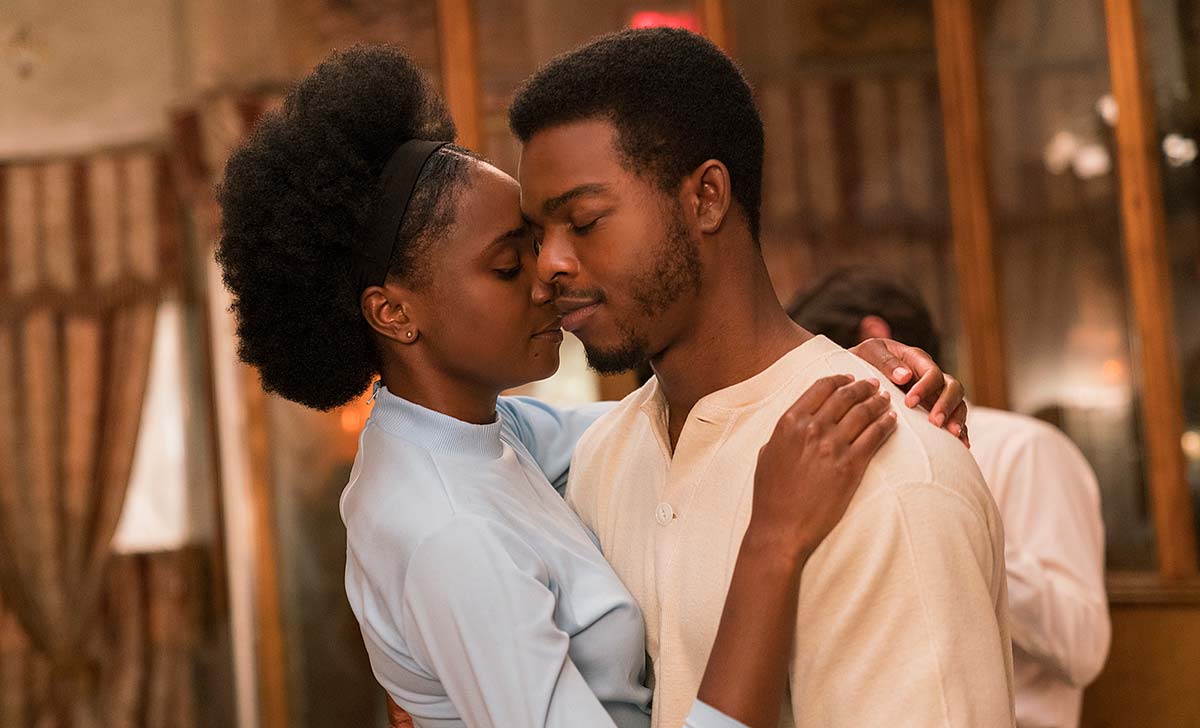When we first meet Tish (Kiki Layne) and Fonny (Stephan James), their love is so soaring and gorgeous, the camera floats above them. They walk to the edge of the Hudson River, and look deep into each other’s eyes, and the power of their gaze all but melts the lens. “You ready for this?” she asks. “I’ve never been more ready for anything my whole life,” he replies.
READ MORE: 55 Must-See Films: The 2018 Fall Movie Preview
That sentiment holds true for viewers of “If Beale Street Could Talk,” Barry Jenkins’ sublime follow-up to his Oscar-winning 2016 masterpiece, “Moonlight.” His latest is an adaptation of a 1974 novel by James Baldwin, and a faithful one; dialogue and narration are often lifted verbatim from the book, but more importantly, Jenkins captures the humor, verve, and considerable complexity of the prose. It tells the story of what happens to Tish and Fonny after they’ve fallen in love, after he’s accused of a horrible crime he did not commit, and is thus on the other side of a glass partition when Tish tells him that they’re going to have a baby.
READ MORE: Toronto International Film Festival: 22 Most Anticipated Movies
But neither of them sees this as bad news — they were going to have a family eventually, and soon, they’re certain, the injustice of Fonny’s imprisonment will be revealed and he’ll be able to join her. And Tish’s family likewise deems it a cause for celebration, not concern. They invite Fonny’s family ever to share the good news and a bottle of cognac; their reaction is not quite as enthusiastic.
READ MORE: Steve McQueen’s ‘Widows’ Is A Stylish Thriller Starring Viola Davis [TIFF Review]
This confrontation, gangbusters on the page, plays even stronger onscreen — Jenkins’ searing screenplay shortchanges neither the earthy humor nor the undeniable pain. He wisely maintains the stream-of-consciousness structure of the novel, which moves freely from the couple’s idealistic past to their difficult present, dramatizing both falling in love and the fallout of love. Sometimes, its mood is evoked purely in imagery, wordless scenes of the two of them together in the world, on the street or on the train; the kind of everyday moments that they never share now, and may never have again. (Their bond is also swoonfully solidified in a sex scene whose eroticism comes from the display of flesh, but also its portrayal of tenderness and patience.)
Jenkins uses more into-the-camera close-ups than most post-Jonathan Demme filmmakers would dare, keenly aware of how that composition’s directness impacts empathy. He uses sets and costumes that feel lived in, rather than trotted out. And every music cue is intoxicating, imparting a bevy of connotations and echoes; does any contemporary filmmaker (aside from Scorsese, the standard-bearer) use popular music more evocatively? Most ingeniously, a few contemporary flourishes aside, he makes what feels more like a film that was shot and cut just after the book’s release, and then locked away in a vault for forty-plus years, rather than some airless “period piece” – including the Godardian use, at two key moments, of real archival photos. That intrusion of the “real world” might feel jarring now; not so much in those more daring times.
And perhaps that’s why “If Beale Street Could Talk” feels like such a miracle. In a time when the frustrations of mainstream movies have caused so many a modern filmgoer (and filmmaker) to long for the cinema of the ‘70s — and idealize it somewhat out of proportion — here is a director whose work has the emotional immediacy, pressing yet offhand, of the best of that period. It was there in the long diner sequence of “Moonlight,” and the hangout vibe of that scene, which settled us in so comfortably we didn’t want to leave. That ’70s spirit is all over ‘Beale Street’ too; in the extended scene of Fonny and Tish’s long date that culminates with their first time in bed, in gentle truths spoken later between their two fathers, in the long talk Fonny shares with an old friend (Brian Tyree Henry) just out of the joint, a conversation that eventually circles, as these things so often must, on notes of true despair.
This inevitability is why the structure is so vital: it reminds the viewer (and the characters) that the happiness they had, and the promise of that time, is worth fighting for. “Don’t ever think that I don’t know that you love me,” Fonny tells her, and means it; the worst thing these characters can do is lose hope, even (or, alternately, especially) when it feels like hope is all they have left. “If Beale Street Could Talk” is a movie about the struggle not to succumb to that despair — to find those moments in this life that let you float above it all, even if just for a moment, and to hold on to those moments for as long as it takes. [A]
Check out all our coverage from the 2018 Toronto International Film Festival here.





